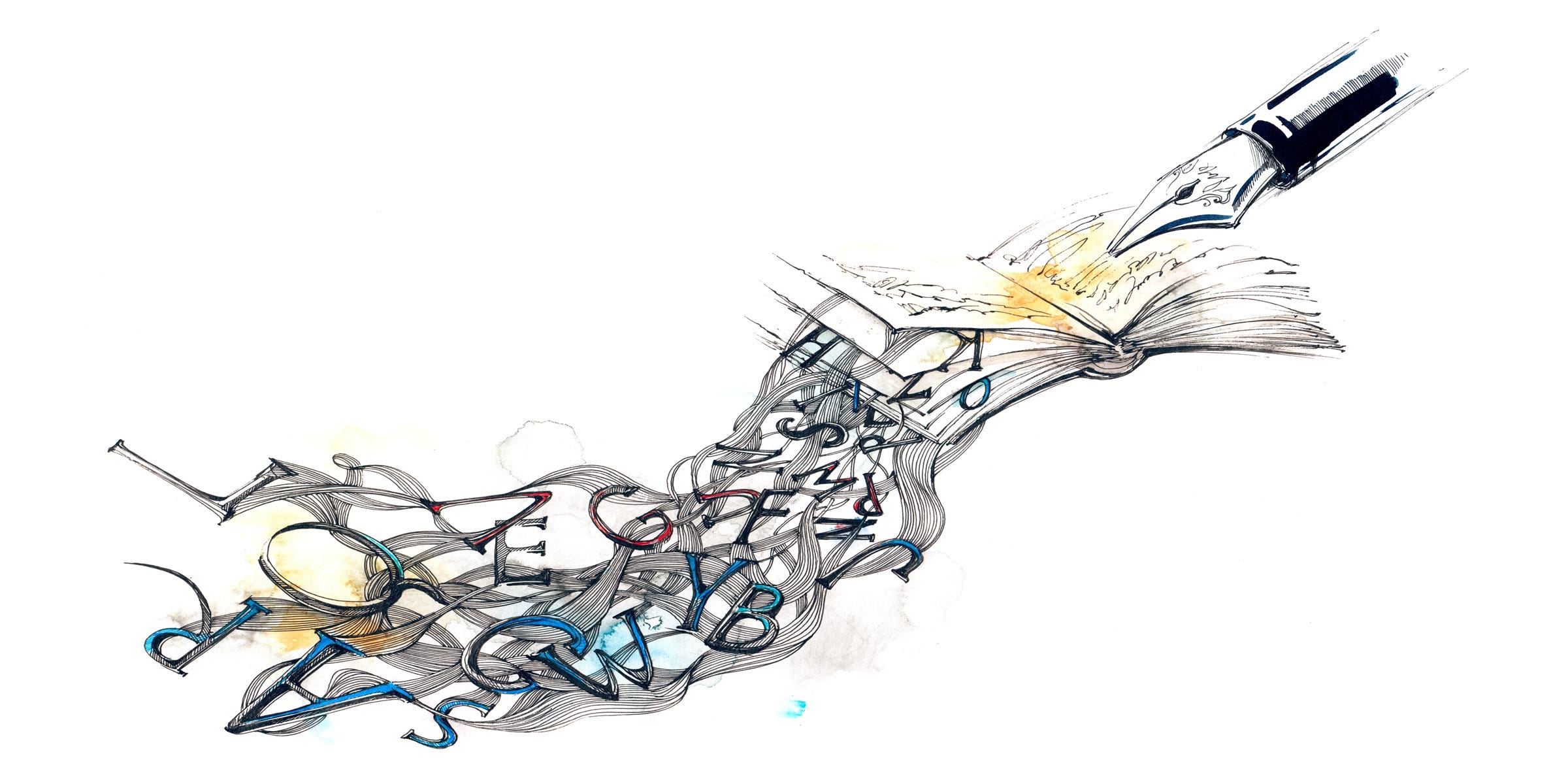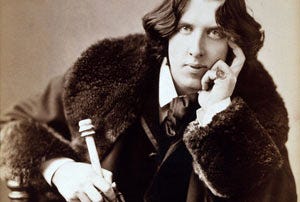✍️ Zero Draft Writing
or, The Power of Writing Nothing
Anne is one of those thoughtful writers who has a lot to say about the craft of writing. She is down to earth and realizes that even as a seasoned writer, she is not immune to writing fears we all deal with.
So you can imagine how it may have felt when Anne got this criticism from one of her beta readers:
“I’m going to love this. But I think your first two pages are throat clearing, and I didn’t know why you summoned me to sit by the campfire to listen to your story until I got to the very bottom of page three.”
Anne admits quite freely that she hates criticism – and this comment was no different. But her next reaction sets the standard for how we all should respond:
“And then I think, ‘Thank you, thank you, thank you, thank you, because you saved me from giving it to an agent or editor before it’s been polished to the very best surface that it can present.’”
This takes confidence. This takes putting aside ego. This takes a million little micro-adjustments in a slice of a moment to stop yourself from spiraling down into a self-hating abyss. Even though the opening statement of the comment was extremely positive – “I’m going to love this” – it’s not always a good enough barrier to stop the seeds of self-doubt taking root.
I’m relating this story to you for two reasons. One, Anne – Anne Lamott – is recognized both as a novelist and for her insights into writing, and still she is susceptible to fear and self-doubt. Two, because she subconsciously has found a way to stop ignore any feelings of self-doubt that may creep into her future writing sessions. She calls it “word dumping”. I prefer the term “Zero Draft”, a term I first heard from Roy Peter Clark.
.
The Difference Between First Draft and Zero Draft
You’re saying to yourself, “Hey, is this another one of your mind tricks?” and I’m saying to you, “Yes. Yes it is.”
It’s a problem I’ve come back to several times in these pages: too often, our fears and other writing flaws such as perfectionism stop us from even getting a single word down. We sit down to do “serious writing” on a first draft as we’ve discussed here and suddenly we freeze up, unable to write anything.
Clearly, despite our best efforts, we still see the First Draft as something to be revered and taken extremely seriously. So let’s set aside the First Draft for a second and consider writing a Zero Draft. A nothing draft. A draft so lacking in reverence that we can put down whatever the fuck we want without worrying about any ballyhooey or nonsense-ical or readers saying “whatsthatnow?” cuz it ain’t no matter but to us.
In other words, let ‘er rip.
There seem to be different definitions of the term “Zero Draft”. For some, it has come to mean basically a plot outline written quickly in 10 pages or fewer. Sometimes, it can be a few words jotted on a cocktail napkin. No dialogue. No description. No character development or any of the wonderful ideas you’ll add later.
For me, Zero Draft means writing without form or care, concentrating on nothing but getting the ideas down. Anne Lamott calls it a word dump – perfect! You might call it throwing words down on a page. Or noodling. Or playing in the sandbox. Or barfing it all out. Call it whatever you want. (Except that last one. That’s gross.)
Here’s what I see as the power of Zero Draft:
We are free to write whatever. This isn’t even a first draft, so we don’t have to think about how people are going to react. They won’t ever read it! These are stream of consciousness notes for you and you alone.
No pressure; all fun! First drafts sometimes feel like pressure because we want to get it “right”. With Zero Drafts, there isn’t a right – in fact, there isn’t an anything. It’s doesn’t pretend to be anything more than a pastiche of ideas that you can draw from later. You’re totally free to play with words and ideas.
Mine the ore after. When you go back to your Zero Draft, you’re going to find some great ideas and turns of phrases that you like. Grab onto them. Highlight them. Make note of them. These are the golden nuggets you wouldn’t find if you sat down to write your “serious” first draft.
If there’s nothing, there’s nothing. You might find that the idea fizzles or that you just don’t like where it’s going. That’s great too! Better you find out now in a 20-minute Zero Draft session than after hours (or days, or years) of agonizing over a first draft. Zero Draft is a great way to “pre-qualify” your ideas to test them out and see if they hold up under writing.
Gets you in the habit of writing. As I stated unabashedly at the beginning, Zero Draft is a mind trick to get you sitting down and writing without worrying too much about the outcome. Writers like Anne Lamott do this naturally already. But we all can, with practice. When you write enough Zero Drafts, eventually you’ll start sitting down to write without a fear in the world almost every time.
Unleash your creativity. We’ve talked about different ways to tap into your creativity, and this is another way. It helps you To Write with Wild Abandon, which of course is where you can be your most creative.
Bonus Tip: Combine with the Pomodoro Technique. This will help you get your Zero Draft out in spurts. It can be difficult sometimes concentrating on just word dumping. But again, with practice, it will start to come naturally. The timed aspect of the Pomodoro Technique can help that.
Once you have some great words and golden nuggets down already, it’s much, much easier to sit down to write your first draft. Plus, you usually have a clearer picture of the story, characters, and themes, which will be immensely helpful too.
Try it for your next writing session and see how well it works for you!
Key Takeaway: We sometimes take writing too seriously, even in the first draft. This kills creativity – and confidence. Zero Draft – the draft before the First Draft – frees us up to word dump without a care in the world. These are stream of consciousness notes that can help you start getting the story/poem/whatever down so that you can go back to craft your First Draft later. The Zero Draft method also helps unlock creativity giving you golden nuggets you wouldn’t have found otherwise.
Over to You: What’s Your Definition of Zero Draft?
How about you? Do you already use a similar technique in the early going? If you never have but want to give it a whirl, be sure to come back and let us know how it goes!
I’ll leave you with a very short clip of Anne Lamott talking about writing. I especially like her last comment: “Please God, help me get out of the way so that I can write what wants to be written.” Another recognition that at least half the writing struggles we face is actually wrestling with ourselves.
Until next time, keep writing with wild abandon!
~Graham
(If you liked this post, please hit the “Like” button below! Thanks!)
email me if you get lost.






Sorry Graham, but I’m a “barf it out” guy. Did it just yesterday afternoon, old fashioned in hand, which helped.
At first, I thought I would say I can't write a zero draft because of my perfectionist streak and just knowing that I'm going to read it back to myself and want it to be coherent. But then I realized that for novels I DO have something like a zero draft. I call it a "story storm" or something like that. It usually amounts to about 10 pages of notes on characters and potential storyline, and it almost reads back like a casual story you might tell a friend at a bar. A lot of "this happens and then this happens." The best thing about it is that once I start writing the novel, I don't ever go back to the story storm. I'm a pantser and have learned to trust it when the story goes off the rails. When I've finished a "first draft" I'll go back and read the story storm and usually have a good laugh at how far the story strayed from the original notes. But sometimes I'll note a few places that I stayed true to my original idea nuggets.
I've never tried to write a zero draft for short stories. That would take practice on my part. I've used your EFF method once or twice to good effect. But usually, I just write when the writings good and if it's not there I distract myself for 10 minutes to a day until it is there again.